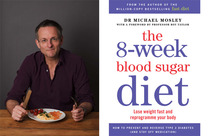MargaretX Michael said most of the research into the effects of intermittent fasting has been carried out on mice. This is backed up by information published in 2013 on the NHS website here. This is an extract
Is there any evidence intermittent fasting increases lifespan?
There is quite a wide range of work on the effects of IF on combating the effects of ageing, but almost all of these studies involved either rats, mice or monkeys. One big problem with studies in animals – particularly rodents – is that they are only expected to live for a few years. While this makes them ideal subjects for longevity studies, carrying out similar, more useful experiments in humans, requires decades-long research to gain credible results.
I don't understand why you mention the fruit fly study, or eating a 300+ cal snack. 
Have any of you got all electric cars? Pros and cons please.
Army horses loose on London streets
Angela Rayner lashes out and calls Sunak “pint sized loser”.



